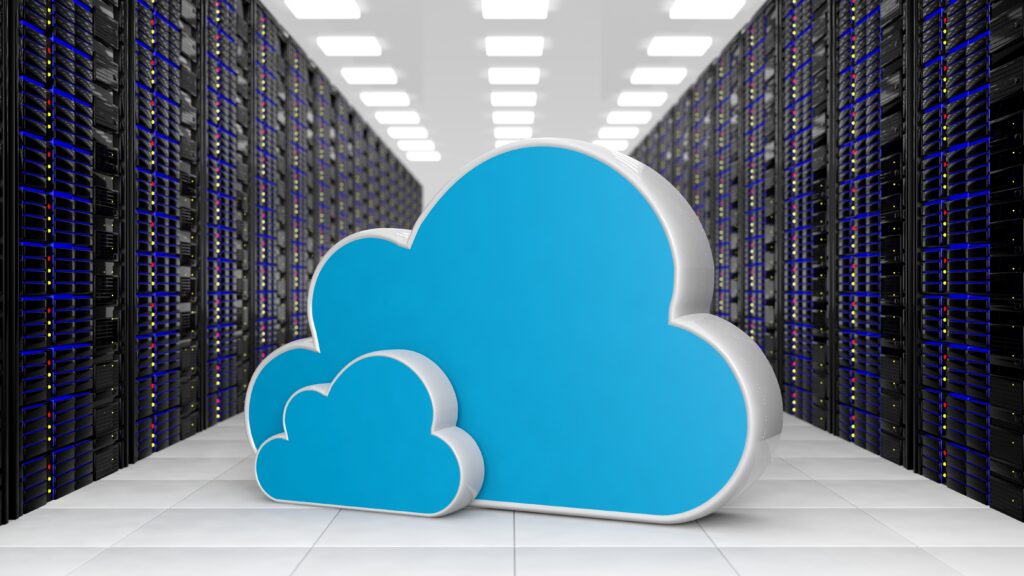Public, Private, and Hybrid
The different types of Cloud and how they affect your business.

Not all clouds are the same and one type of cloud computing is not right for everyone. Let’s look a little more into the different models, types, and services to find the right solution for your business.
Public Cloud
Public clouds are owned and operated by a third-party cloud service providers, which deliver their computing resources, like servers and storage, over the Internet. Microsoft Azure is an example of a public cloud. With a public cloud, all hardware, software, and other supporting infrastructure is owned and managed by the cloud provider. You access these services and manage your account using a web browser. Public clouds can also be deployed faster than on-premises infrastructures and with an almost infinitely scalable platform. Every employee of a company can use the same application from any office or branch using their device of choice as long as they can access the Internet. While security concerns have been raised over public cloud environments, when implemented correctly, the public cloud can be as secure as the most effectively managed private cloud implementation if the provider uses proper security methods, such as intrusion detection and prevention systems (IDPS).

Private Cloud
A private cloud refers to cloud computing resources used exclusively by a single business or organization. A private cloud can be physically located on the company’s on-site datacenter. Some companies also pay third-party service providers to host their private cloud. A private cloud is one in which the services and infrastructure are maintained on a private network. The private cloud is defined as computing services offered either over the Internet or a private internal network and only to select users instead of the general public. Also called an internal or corporate cloud, private cloud computing gives businesses many of the benefits of a public cloud- including self-service, scalability, and elasticity – with the additional control and customization available from dedicated resources over a computing infrastructure hosted on-premises. In addition, private clouds deliver a higher level of security and privacy through both company firewalls and internal hosting to ensure operations and sensitive data are not accessible to third-party providers. One drawback is that the company’s IT department is held responsible for the cost and accountability of managing the private cloud. So private clouds require the same staffing, management, and maintenance expenses as traditional datacenter ownership.
Two models for cloud services can be delivered in a private cloud. The first is infrastructure as a services (IaaS) that allows a company to use infrastructure resources such as compute, network, and storage as a service. The second is platform as a service (PaaS) that lets a company deliver everything from simple cloud-based applications to sophisticated-enabled enterprise applications. Private clouds can also be combined with public clouds to create a hybrid cloud, allowing the business to take advantage of cloud bursting to free up more space and scale computing services to the public cloud when computing demand increases.

Hybrid Cloud
Hybrid clouds combine public and private clouds, bound together by technology that allows data and applications to be shared between them. By allowing data and applications to move between private and public clouds, a hybrid cloud gives your business greater flexibility, more deployment options, and helps optimize your existing infrastructure, security, and compliance. For industries that work with highly sensitive data, such as banking, finance, government, and healthcare, hybrid may be their best cloud option. For example, some regulated industries require certain types of data to be stored on-premises while allowing less sensitive data to be stored on the cloud. In this kind of hybrid cloud architecture, organizations gain the flexibility of the public cloud for less regulated computing tasks, while still meeting their industry requirements. Organizations that use a hybrid cloud platform are able to use many of the same security measures that they use in their existing on-premises infrastructure—including security information and event management (SIEM) capabilities. In fact, some organizations find cloud hybrid security to be superior to that of their on-premises datacenter because of always-up-to-date, automated data redundancy, high availability, disaster recovery, and cybersecurity features.
You’re probably using cloud computing right now, even if you don’t realize it. If you use an online service to send email, edit documents, watch movies or TV, listen to music, play games, or store pictures and other files, it’s likely that cloud computing is making it all possible behind the scenes. The first cloud computing services are barely a decade old, but already a variety of organizations—from tiny startups to global corporations, government agencies to non-profits—are embracing the technology for all sorts of reasons.

Book a free Virtual Network Assessment today and find out if cloud computing is right for your business!
